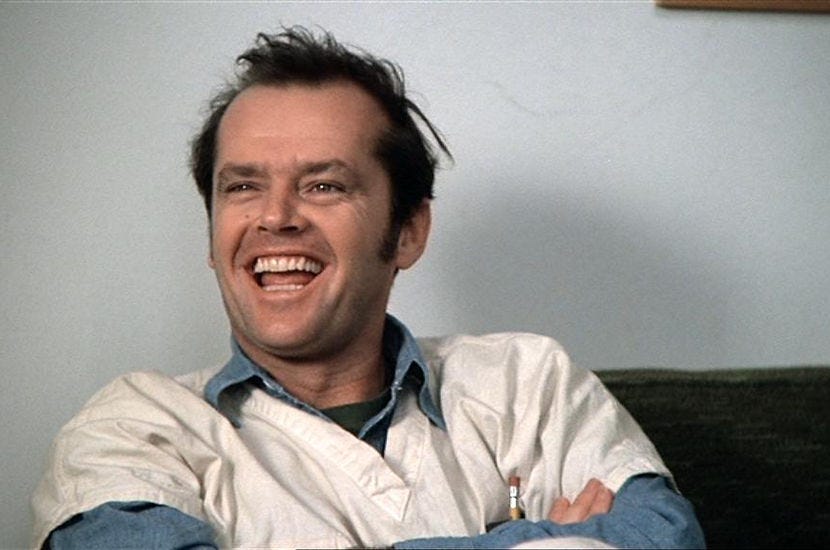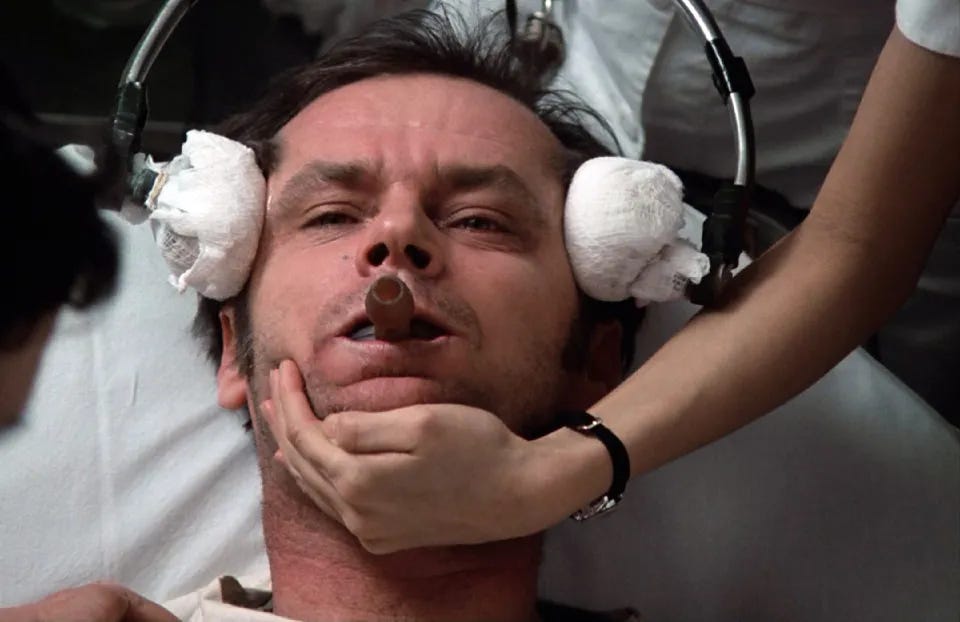"One Flew Over the Cuckoo's Nest" is a seminal novel by Ken Kesey, first published in 1962. Set in an Oregon psychiatric hospital, the novel is narrated by Chief Bromden, a half-Native American patient who pretends to be deaf and mute. Through Bromden's eyes, Kesey offers a critique of the oppressive structures of society and the mental health system, exploring themes of freedom, individuality, and the struggle against conformity.
Plot Overview
The narrative unfolds with the arrival of Randle Patrick McMurphy, a brash, loud, and charismatic convict who has feigned insanity to avoid hard labor in a prison work farm. McMurphy's entrance into the ward brings an immediate clash of wills with Nurse Ratched, the controlling and manipulative head nurse who represents the oppressive power structures that the novel criticizes.
McMurphy's antics and rebellious spirit quickly endear him to the other patients, who have been subdued by Nurse Ratched's regime. He challenges the rules and procedures, betting the patients he can make Nurse Ratched lose her temper, and organizes card games, fishing trips, and basketball games, injecting a sense of life and autonomy back into the ward.
As McMurphy's influence grows, so does Nurse Ratched's resolve to crush his rebellion. The power struggle between them escalates, leading to tragic consequences that expose the dehumanizing effects of the institution and the broader societal systems it represents.
Themes and Analysis
Kesey's novel is a powerful critique of the dehumanization and mechanization of modern life, particularly within the psychiatric system of the 1960s. The hospital, with its strict schedules, medication routines, and electroshock therapy, serves as a microcosm for society's tendency to suppress individuality and enforce conformity. Nurse Ratched embodies the cold, calculating nature of such systems, using her authority to control and manipulate the patients, stripping them of their dignity and autonomy.
Chief Bromden's character and his narrative perspective play a crucial role in the novel. His feigned deafness and muteness symbolize the silencing and marginalization of those who do not fit within societal norms. His gradual awakening and decision to speak out and take action reflect the novel's message about the importance of resistance and the power of reclaiming one's voice.
McMurphy, with his defiance and zest for life, represents the novel's ideal of authentic living and individual freedom. His battle with Nurse Ratched highlights the human spirit's resilience and the necessity of challenging oppressive systems. However, the novel also presents a nuanced view of rebellion and conformity, suggesting that true liberation requires more than just defiance—it requires a reclamation of self and community.
Reception and Legacy
"One Flew Over the Cuckoo's Nest" was a critical and commercial success upon its release, and its themes have remained relevant over the decades. The novel has been celebrated for its vivid characters, imaginative narrative technique, and its powerful critique of societal norms. It has also faced controversy and censorship, particularly for its depictions of mental illness and its critique of the psychiatric profession.
The novel was adapted into a highly successful film in 1975, directed by Miloš Forman and starring Jack Nicholson as McMurphy and Louise Fletcher as Nurse Ratched. The film won multiple Academy Awards, including Best Picture, further cementing the story's place in American cultural history.
Kesey's novel continues to be a significant work in American literature, offering a potent critique of the forces that seek to control and conform. Its exploration of freedom, identity, and resistance resonates with readers and speaks to the ongoing struggle to maintain individuality in the face of societal pressures.




